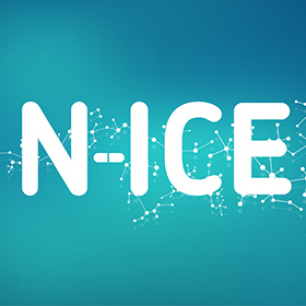RECRUITMENT FOR THE N-ICE TRIAL HAS NOW CLOSED
For information on services available in your area please contact the National Alcohol and Other Drug Hotline on 1800 250 015
The N-ICE Trial was a randomised controlled trial that tested whether N-Acetyl Cysteine (NAC) could help people reduce their use of crystalline methamphetamine. We found that NAC did not reduce methamphetamine use more than placebo.
Findings
Detailed study results are available here. Results of the trial were presented at the NDARC Symposium on Thursday November 26th 2020:
Where else can I get help for ice use?
A number of free and confidential support services are available for people experiencing problems with ice, as well as their family and friends. Call the National Alcohol and Other Drug Hotline on 1800 250 015 to be automatically directed to the Alcohol and Drug Information Service in your state or territory.
For emergency support, call Lifeline on 131 114 or dial '000' for an ambulance or police.
The N-ICE team and trial sites
Our team are an internationally recognised team of researchers who have experience trialling treatments for ice and other drugs, and we have conducted several of the largest trials of NAC in the world. Further details about the trial investigators and their institutions are below.
Associate Professor McKetin, National Drug and Alcohol Research Centre, University of New South Wales.
Dr Olivia Dean, Dr Alyna Turner and Professor Michael Berk , IMPACT Strategic Research Centre, Deakin University and Barwon Health
Professor Dan Lubman and Dr Victoria Manning, Monash University Eastern Health Clinical School and Turning Point
Associate Professor Peter Kelly and Ms Dayle Raftery , Illawarra Health and Medical Research Institute, University of Wollongong and the Illawarra Drug and Alcohol Service (iDAS)
Professor Paul Dietze and Dr Brendan Quinn, Burnet Institute
Dr Peter Higgs, La Trobe University
Professor Gregory Carter and Professor Amanda Baker, School of Medicine and Public Health, University of Newcastle
Olivia Dean, Alyna Turner and Michael Berk
Deakin University
Dan Lubman, Shalini Arunogiri and Victoria Manning
Monash University
Peter Kelly
University of Wollongong
Barbara Sinclair and David Reid
Illawarra Drug and Alcohol Service
Greg Carter and Amanda Baker
University of Newcastle
Brendan Quinn and Paul Dietze
Burnet Institute
Peter Higgs
La Trobe University
This is a two-arm, parallel, double-blind, placebo-controlled, three-site, randomised (ratio 1:1) trial using permuted block randomisation, with variable block sizes, stratified by site, sex and injecting (vs. non-injecting) methamphetamine use. Participants (N = 180; 60 per site) need to be dependent on methamphetamine, interested in reducing their methamphetamine use, and not currently receiving treatment for substance use disorders. The trial is being conducted in outpatient settings in Melbourne, Geelong and Wollongong, Australia. Participants will receive either 2,400 mg oral NAC or matched placebo, delivered as a take-home medication for 12 weeks (2 x 600 mg capsules, self-administered morning and evening). Adherence is being monitored using eCAP™ medication bottle lids which record the date and time of bottle opening. The primary outcome measure is methamphetamine use during the 12-week trial medication period measured as (a) days of use, assessed using the Timeline Followback, and (b) methamphetamine-positive saliva tests, taken weekly. Secondary measures include weekly assessment of methamphetamine craving, severity of methamphetamine dependence, methamphetamine withdrawal symptoms, and psychiatric symptoms (depression, suicidality, psychotic symptoms and hostility). Adverse events are monitored at each weekly assessment. Tolerability is assessed using the Treatment Satisfaction Questionnaire for Medication.
The trial is complete and the findings have been published. People who participated in the trial should have already received their individual results. If you have questions about your results, please contact your local trial site or email r.mcketin@unsw.edu.au.
Results of the trial were presented at the NDARC Symposium on Thursday November 26th 2020:
Detailed study results are available here.
Data can be made available from the project to support PhD and post-doctoral research projects.
The N-ICE trial is the first clinical trial to assess whether NAC can reduce methamphetamine use. This trial will provide a platform for understanding the potential utility of NAC in managing methamphetamine dependence and clinically related outcomes. If found to be effective, take-home NAC could provide a potentially scalable and affordable pharmacotherapy option for methamphetamine dependence.



